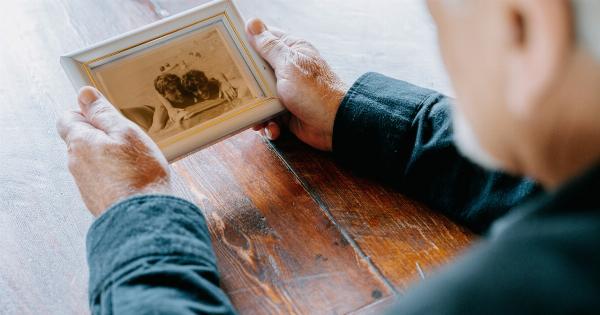Human beings are social creatures, and throughout our lives, we form various types of relationships with others. One of the most crucial and intricate relationships is the one between caregivers and companions.
This connection is built on mutual dependencies, where both parties rely on each other for support, companionship, and fulfillment. In this article, we will explore the dynamics of this unique relationship, its evolution over time, and the profound impact it has on individuals involved.
1. Caregivers: The Backbone of Support
Caregivers play a vital role in society, providing assistance, care, and support to individuals who are unable to fully care for themselves.
They often take on the responsibility of looking after the physical, emotional, and sometimes even financial needs of others. From professional caregivers in healthcare facilities to family members taking care of loved ones, their commitment and sacrifices should be acknowledged and appreciated.
2. The Evolution of the Caregiving Relationship
The caregiver-companion relationship starts with an imbalance of power and dependency. Initially, the caregiver holds the primary role responsible for addressing the needs of the companion.
However, over time, this relationship grows and evolves into a more equal partnership. As the companions adjust to their circumstances and develop trust, they gain confidence and actively contribute to the relationship. This transformation often results in caregiving becoming companionship.
3. Companions: Beyond Ordinary Connections
Companionship is more than simply spending time together. It encompasses finding joy, comfort, and emotional support in one another’s presence. Companions offer not only physical assistance but also emotional solace and psychological wellbeing.
They become confidants, friends, and pillars of strength for each other. Companionship provides a sense of belonging and reduces feelings of loneliness, benefiting both parties involved.
4. A Holistic Approach to Care
Recognizing the mutual dependency in caregiver-companion relationships allows for a more holistic approach to care. It emphasizes the importance of supporting the physical, mental, and emotional needs of both individuals involved.
By considering the overall wellbeing of both the caregiver and companion, the quality of care improves, fostering a healthier and more balanced relationship.
5. The Emotional Toll on Caregivers
Caregivers often face significant emotional challenges, as they witness the struggles and decline of their companions. This emotional toll can lead to burnout, compassion fatigue, and even feelings of guilt or inadequacy.
Acknowledging these emotions is crucial to support caregivers and prevent their mental and physical health from deteriorating. Providing resources, respite care, and emotional support is paramount to maintain the sustainability of the caregiver-companion relationship.
6. The Liberation of Companionship
As the companions gain independence and contribute more actively to the relationship, they embrace their own liberation. They become less reliant on the caregiver for everyday tasks and decisions, enhancing their sense of self-worth and autonomy.
This liberation not only benefits the companions but also empowers the caregivers, as they witness the positive impact of their efforts in supporting their companions’ growth and independence.
7. The Importance of Communication and Trust
Effective communication and trust are the cornerstones of the caregiver-companion relationship. Open lines of communication allow for the expression of needs, concerns, and desires, while trust fosters a safe and supportive environment.
Both parties must actively engage in honest and empathetic communication to ensure that the relationship remains strong and transparent.
8. Building and Nurturing the Relationship
Building and nurturing the caregiver-companion relationship requires effort from both sides. Regular quality time, shared hobbies, and engaging activities can help strengthen the bond.
Moreover, expressing gratitude, celebrating milestones, and acknowledging the essential role each person plays are vital for long-term sustainability and mutual satisfaction within the relationship.
9. The Societal Impact of Mutual Dependencies
The positive impact of caregiver-companion relationships extends beyond the individuals involved.
By recognizing and valuing the role of caregivers and providing support systems, society creates an environment that promotes compassion, empathy, and care. Moreover, embracing the idea of interdependence encourages a culture that fosters inclusivity and celebrates the contribution of all members.
10. Redefining Caregiving and Companionship
Mutual dependencies in caregiver-companion relationships challenge the traditional notions of caregiving. Instead of focusing solely on unidirectional support, a more holistic approach acknowledges the reciprocal nature of the relationship.
This shift in perspective allows us to redefine caregiving, emphasizing companionship and equal partnership rather than unilateral care.





























